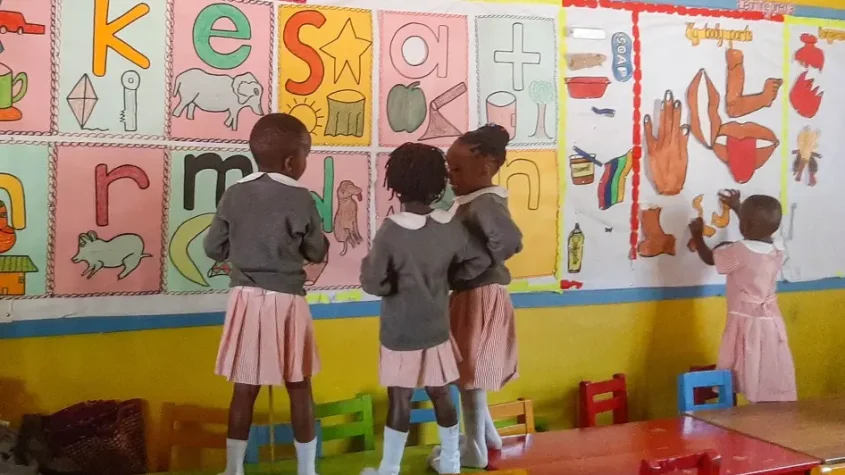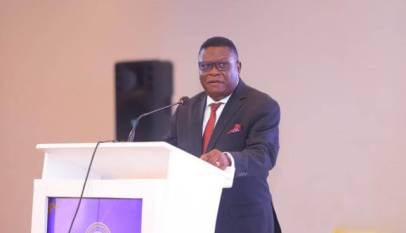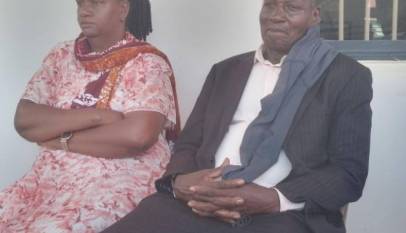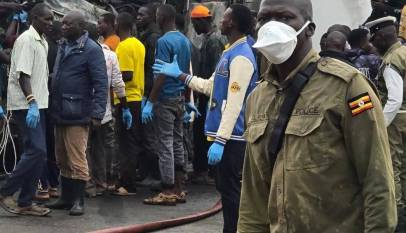Gov’t Slashes Education Sector Budget for Next Fiscal Year
The government has reduced its allocation to the education and sports sector in the upcoming financial year 2025/26, raising concerns among stakeholders over the country’s commitment to human capital development.
According to budget estimates presented by Finance Minister Matia Kasaija, the government plans to spend 5.04 trillion shillings on education, representing only 6.97% of the projected 72.376 trillion shillings national budget. This marks a reduction of over 810 billion shillings from the 5.85 trillion shillings allocated in the 2024/25 financial year, which had constituted 8% of the total budget.
“Madam Speaker, next financial year, I have provided 5.04 trillion shillings for priority interventions,” said Kasaija during the budget reading, highlighting key achievements made in the concluding financial year.
In 2024/25, the government had increased the education budget by 5.2%, up from 5.56 trillion shillings in 2023/24. These funds supported over 9.5 million learners under Universal Primary Education (UPE) and nearly 1 million under Universal Secondary Education (USE), as well as activities linked to upcoming international events like CHAN and AFCON 2027.
The reduced allocation comes amid growing demands across the education sector, institutions continue to grapple with critical challenges, ranging from understaffing at all levels, from primary schools to universities, to high pupil-to-teacher ratios and inadequate teacher accommodation.
Another concern that had rocked the sector prior to the budget speech of salary disparities also remains unresolved yet arts and humanities teachers recently announced a strike to demand salary enhancements to 4 million shillings in line with their science counterparts.
According to parliamentary documents, the education sector currently faces a funding gap of close to 1.2 trillion shillings to meet its operational and staffing needs.
It is against this backdrop that critics and education experts have raised concerns over the government’s declining commitment to the education sector, warning that such underinvestment poses a serious threat to the country’s long-term national development.
For instance, education policy analyst Gonzaga Kaswarra criticised the government’s budget priorities, pointing out that rising debt servicing costs are crowding out spending on critical sectors like education.
“If you look at the past three budgets, it’s clear that more money is going to repay loans, many of which were borrowed for non-performing sectors,” Kaswarra said. “What’s left is too little, and education remains a low priority.”
He stressed that every dollar invested in education yields a return of up to 13 dollars, the highest of any sector, and warned that underinvestment will have ripple effects on national security, health, and gender equality.
“Education is deeply linked to other sectors. Reduced funding could lead to more girls dropping out and higher health burdens,” he added.
Kaswarra also condemned the continued neglect of Early Childhood Development (ECD), which remains largely in the hands of the private sector.
“This places a heavy burden on parents and affects education quality and future human capital, and we have not heard it anywhere in the budget speech, which means it’s not a priority,” he said.
Professor Anthony Mugagga, Principal of Makerere University’s College of Education and External Studies, echoed these concerns, saying the budget reduction contradicts the realities on the ground.
“It’s disappointing. The number of school-going children is increasing, and so is the demand for resources. Yet the budget is shrinking,” he noted. “At this rate, government objectives like promoting science education will not be achieved as there are not enough funds allocated to the sector.”
Several reports over the years have emphasised that for countries like Uganda to achieve the desired standards in education, at least 20% of the national budget should be allocated to the sector. However, Uganda continues to fall significantly short of this benchmark.
The 24th edition of the Uganda Economic Update, released on February 24 this year, also highlighted a disconnect between the country’s development aspirations and its resource allocation, noting that while Uganda sets ambitious goals, its spending priorities often contradict those objectives.
“In 2021, overall public spending on education stood at 2.7 percent of GDP, which is below the recommended minimum threshold of 4 percent,79 and compares poorly to regional peers that spend 4.2 percent of GDP,” the report reads in part.
Meanwhile, with the allocated 5.04 trillion shillings for priority interventions in the 2025/26 financial year, Minister Kasaija stated that the government will continue providing free education under Universal Primary Education (UPE), Universal Secondary Education (USE), and Universal Post-O’ Level Education and Training.
The funds will also support sponsorships and student loans for higher education, the rehabilitation of 120 traditional secondary schools and 31 special needs primary schools, as well as the construction of 116 new seed secondary schools and the expansion of 61 existing ones.
In addition, the budget will cater for the recruitment of more teachers and non-teaching staff, the rollout of a nationwide electronic inspection system to monitor teacher and learner attendance, and the provision of textbooks and instructional materials aimed at improving the textbook-to-student ratio from the current 1:15 to 1:3.
The government also plans to operationalise Bunyonyo and Busoga universities and complete stadiums and training facilities in preparation for CHAN and AFCON 2027.
Woman Commits Suicide Over Debts of UGX 6million
Constitutional Court Dismisses Petition Against NRM-DP Cooperation Deal
Bukomansimbi Woman MP Petitions High Court To Review January Election Results
Woman Commits Suicide Over Debts of UGX 6million
Constitutional Court Dismisses Petition Against NRM-DP Cooperation Deal
Bukomansimbi Woman MP Petitions High Court To Review January Election Results
Woman Commits Suicide Over Debts of UGX 6million
Gulu Central Police is investigating the circumstances under which a 52-year-old businessw…
Now On Air – 88.2 Sanyu Fm
Get Hooked Right Here
DON'T MISS!!!
Woman Commits Suicide Over Debts of UGX 6million
Gulu Central Police is investigating the circumstances under which a 52-year-old businesswoman in Gulu City, Claire Nambooze, took her own life in her house in Vanguard Cell, Laroo Pece Division, Gulu city.

























